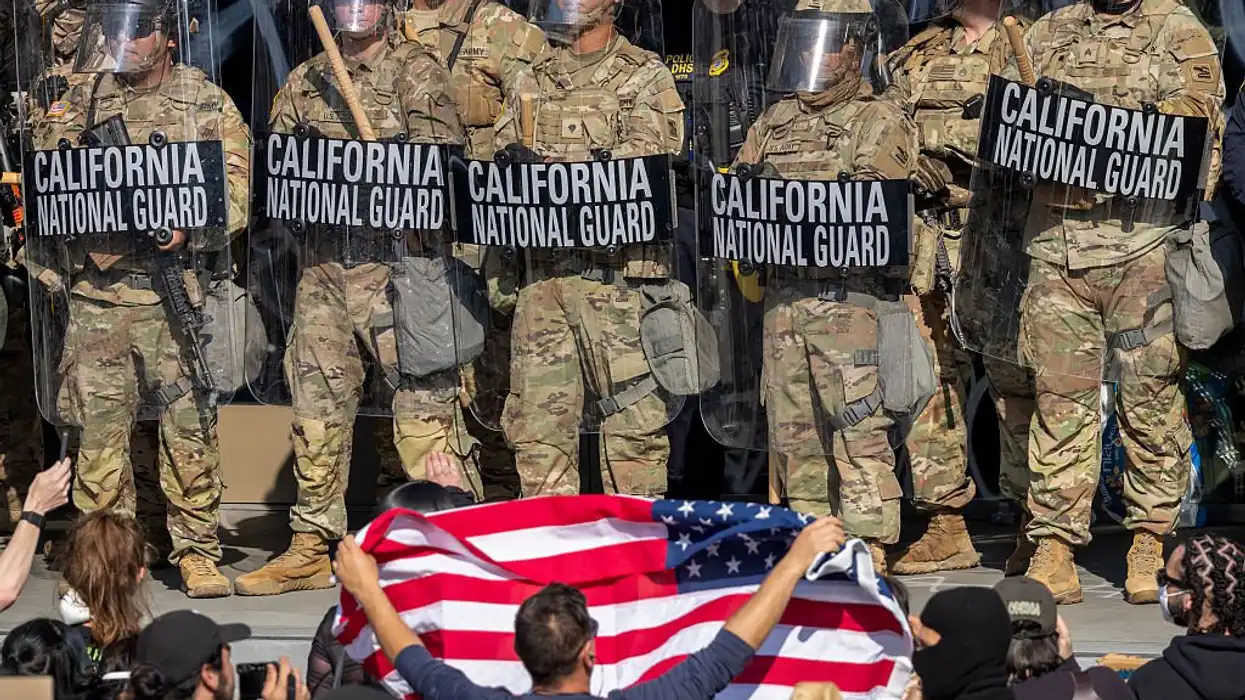Since the Trump Administration took office nearly nine months ago, many legal scholars have sounded the alarm, alleging numerous legal violations by the executive branch. As Lawfare reports, as of October 27, 227 cases involving the administration and his appointees remain ongoing in the courts.
Lawsuits have been filed by numerous individuals, state and local governments, organizations, activist groups, and legal defense funds. It is difficult to decipher the sheer volume of cases, especially since the vast majority have not yet been resolved. These suits invoke a wide array of law school jargon, weaving a net of complex conversations on how far the executive branch can go. It is also important to note that court decisions are incredibly fluid and what happens one day can quickly flip the next.
Trump v. Global Health Council
In the blizzard of Elon Musk’s supposed elimination of “waste, fraud, and abuse,” the consequences have been widespread and devastating. As journalist Nicholas Kristof reported on the ground— “In South Sudan, one of the world’s poorest countries, the efforts by Musk and President Trump are already leading children to die.”
Cuts to USAID (United States Agency for International Development) funding, including funding for the PEPFAR HIV/AIDS prevention program, have prompted multiple lawsuits from various groups responsible for distributing foreign aid. In February, The Global Health Council, a nonprofit organization dedicated to advancing global health priorities, filed a suit and sought immediate release of the funds.
Federal District Court Judge Amir Ali granted this request, but an Appeals Court and the Supreme Court later halted the injunction, in part, while litigation continues. Separately, in July, Congress approved a package that Trump signed into law and exempts PEPFAR from any spending cuts going forward. However, as the New York Times reported in August, the Office of Management and Budget has only appropriated 48% of those funds, leaving the administration’s commitment to this life saving program and the rule of law in doubt. The court case remains ongoing.
Trump v. Cook
The Federal Reserve— the independent central bank of the United States—is made up of a board of seven governors who manage monetary policy. The governors serve staggered 14 year terms, nominated by the President and confirmed by the Senate. This system has helped maintain the Federal Reserve’s status as a nonpartisan decision maker, unaffected by whichever party controls power in DC.
In August, Bill Pulte, the director of the Federal Housing Finance Agency, accused Governor Lisa Cook, an Oxford educated expert on Russian economic policy, of mortgage fraud. Notably, Cook was nominated by President Biden and confirmed to the board in 2022. Soon, President Trump echoed these unsubstantiated allegations on Truth Social, calling on Cook to resign. Cook’s attorney Abbe Lowell has blasted the accusations, saying “his [Trump’s] reflex to bully is flawed and his demands lack any proper process, basis, or legal authority.”
On August 25, Trump purportedly fired Cook, the first time a president has ever tried to do so. Cook immediately sued, and on September 9, Federal District Court Judge Jia M. Cobb issued an order allowing her to keep her job. An appeals court panel concurred, and the Supreme Court has deferred any further consideration of the case until January. Cook retains her job and continues to participate in official duties.
In an *amicus brief to SCOTUS, former treasury secretaries and central bank chiefs argued that “allowing the removal of Governor Lisa D. Cook while the challenge to her removal is pending would threaten that independence and erode public confidence in the Fed.”
Illinois v. Trump, Oregon v. Trump, & Newsom v. Trump
Citing “rising crime,” “a war within,” an “invasion,” and “very unsafe” conditions within major cities, President Trump has repeatedly suggested deploying National Guard troops to urban centers. In June, troops were sent to Los Angeles. In August, it was Washington D.C. and just in the past week: Chicago and Portland.
Increased federal law enforcement is not new, as many are familiar with the increases in ICE deployment and arrests, especially in the Chicago area. All relevant jurisdictions have filed suit. On September 2, District Court Judge Charles Breyer ruled Trump violated federal law with his deployment of troops to Los Angeles, slamming Trump’s effort to “create a national police force.” On October 4, Trump appointed District Court Judge Karin Immergut granted a restraining order prohibiting deployment of troops to Portland.
Four days later, an Appeals Court partially stayed that order, but the administration was still prohibited from directly deploying troops into the streets of Portland. On October 20, an appeals court fully stayed Immergut’s order. And then, five days after that, that same appeals court partially reversed its own order.
As of October 27, troops have not yet been deployed to Portland. On October 9, District Court Judge April Perry prohibited deployment of troops to Chicago, ruling that the administration likely violated the 10th and 14th amendments. On October 16th, a three judge panel of the Seventh Circuit Court of Appeals upheld Perry’s ruling, directly criticizing Trump’s rationale of “rebellion.” The Trump Administration plans to appeal to SCOTUS.
In response to legal defeats, the President and his Cabinet have repeatedly threatened arrest and impeachment of federal judges. There have also been concerns regarding retaliation against political opponents of Trump. On September 22, after repeatedly calling for former FBI Director James Comey to be arrested—among others—Trump fired US District Attorney Erik Seibert and replaced him with Lindsey Halligan, an insurance lawyer with no prosecutorial experience. Despite dissuasion from career prosecutors in the office, Halligan charged anyway and Comey was narrowly indicted by a grand jury in the Eastern District of Virginia.
On October 9, a grand jury in that same district indicted New York Attorney General Leticia James on mortgage fraud charges (similar to the allegations against Lisa Cook), who previously led a civil suit against Trump and his organization for fraud. As an anonymous former federal prosecutor put it, “It’s a race to see whether this is weaker than the Comey case or stronger because they’re the two weakest cases I’ve ever seen in my life.”
Both Comey and James allege vindictive prosecution. According to David Weinstein, another former federal prosecutor, “There’s at least a 50-50 chance here, perhaps as high as 75% based on some of these outside of the process statements that are being made.” As for Trump’s Truth Social post on the matter, Weinstein continued, “Certainly that post is going to be an exhibit, if not the first and primary exhibit by both the defense on the part of James Comey and Leticia James.”
As a former Assistant Attorney General in the George H.W. Bush administration noted, “The greatest threat… comes with the probability that the President is on the road to assuming autocratic powers and that the Congress has allowed its countervailing constitutional powers to wither.”
*Amicus Brief: A legal document representing the opinions/perspectives of a third party with a strong interest in the outcome of a court case.











